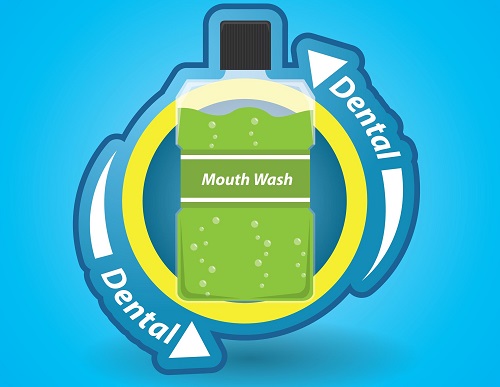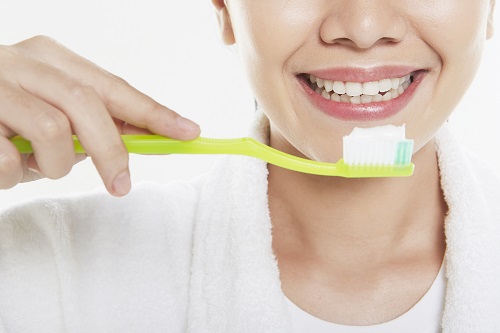Black Spot on Tooth: An Explanation with Treatment Options
Black spots can appear on your teeth for a variety of reasons. They are one of the most common staining problems, but before you worry about the cosmetic issues, you need to determine the cause of the spots and make sure you get the proper dental treatment. Black spots can be an indication of a serious tooth health problem, such as including damaged tooth enamel, tooth decay, or the start of a cavity, so contact your dentist as soon as possible if you notice a dark spot developing.
One of the most common reasons for black spots is dental caries. Dental caries is caused by bacteria and are an indication of tooth decay. The longer you allow bacteria to damage your teeth, the higher your risk of losing the tooth.
Smoking and exposure to certain types of foods and drinks can also cause dark spots to form. (And since some of these foods and beverages are high in sugar, you’ll have surface stains and might also develop issues with bacterial staining) Chewing tobacco is also a concern because the liquid in the tobacco is coming into direct contact with teeth and in just a short time there can be a great deal of staining.
“It’s hard for you to know what a black spot on your tooth means. While it’s not an emergency, it’s important to have any discoloration checked to avoid major problems in the future.”
Good dental hygiene is also important. To avoid dark spots from forming on your teeth, make sure you are brushing after every meal and consider investing in a spin toothbrush that does a better job of loosening plaque. Also, make sure you rinse your mouth with a mouthwash recommended by your dentist or with salt water. This further helps to break up food particles and plaque.
Sometimes, black spots develop because you are treating other issues. If your dentist has prescribed a chlorhexidine mouthwash to help with gum disease and you drink dark beverages, there’s a good chance dark spots will form on your teeth. Even though you’re doing the right thing trying to combat gum disease, you’re forced to deal with negative side effects. If you’re concerned about your teeth darkening when using a prescription mouthwash, speak to your dentist.
It’s also possible for iron supplements to create dark spots on your teeth—another effort to improve your health leads to a negative side effect. If you’re using iron supplements and you have concerns about tooth discoloration, speak to your dentist as soon as possible. There might be preventative measures you can take to stop dark spots from becoming a problem.
In some cases, young children develop black spots on their teeth when they are drinking out of a bottle. Chances are, it won’t lead to long-term problems, but if you’re concerned, speak to your child’s dentist.
What are Your Treatment Options for Black Spots on Teeth?
The most important thing to remember when it comes to treating black spots on teeth is that prevention is the best treatment. And, if you already have black spots but they aren’t that noticeable, early intervention is best. The sooner you begin thinking about black spots and doing what you can to prevent them or prevent them from getting worse the better.
Start by making sure you have a proper dental hygiene routine. Brush, floss, and rinse regularly, preferably after every meal. The longer food and other debris stays on your teeth, the worse problems are going to get. This goes for discoloration and staining, as well as a variety of other dental health issues.
If you’re unsure what you need to include in your at-home oral care routine, speak to your dentist at your next appointment.
In addition to brushing and flossing, make sure you’re drinking plenty of water and eating the healthiest diet possible. Occasional treats shouldn’t be a problem, but if your diet is primarily junk food you’ll benefit from a change—and in more ways than just improved dental hygiene! Eat plenty of raw fruit and vegetables, avoid sugary foods, and when you do indulge, take extra measures to reduce your risk. For instance, when you drink a beverage known to leave stains and spots on your teeth, make sure you drink through a straw.
For an added boost to healthier, whiter teeth, consider rinsing your mouth with lemon water, an apple cider vinegar solution, or a mix of water with a few drops of hydrogen peroxide. All of these things can help keep your teeth whiter and prevent black spots from forming, but they likely won’t be enough to remove black spots that have already developed.
If spots on your teeth (or even one spot) are severe and it’s affecting your self-esteem and how you feel about your smile, there are options available. At-home whitening treatments can help reduce staining, but in the case of black spots, you’ll probably need professional whitening. Professional whitening can make your teeth several degrees whiter and make a difference not only with the spots but with the color of your teeth overall.
Another option, if you have a tooth with a black spot that has undergone a root canal, is to have a crown put over the tooth. This not only results in a tooth that is as close to the color of your other teeth as possible, it also adds a layer of protection to a vulnerable tooth.
If you have several black spots on your teeth or you are concerned about other issues with your smile, you might consider porcelain veneers. It’s an investment but it can give you the smile you’ve wanted your entire life. Porcelain veneers not only cover spots and discoloration on your teeth, it can also help you repair issues with chips or broken or crooked teeth.
The most important part of dealing with black spots on your teeth is to make sure the spots are not caused by a dental health issue. If so, you’ll need to have it repaired before you start worrying about any cosmetic issues. The good news is that, if you do have black spots, it’s almost always possible to correct the problem. Share your concerns with your dentist so you can discuss the variety of options available to you to correct your smile.
Relate Posts to Read:
Gray Tooth Causes and Treatment
Medically Fact-Checked & Written by Our Dental Editorial Team
You can read more about our editorial guidelines by clicking this link and learn more about the Emergency Dentists USA editorial team here.









